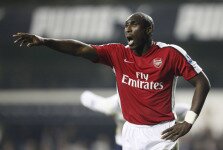
Four years locked in a loveless marriage were long enough for Newcastle United and Alan Pardew. This parting of the ways, which has been inevitable for some time, is nevertheless surprising because of its timing, and for the fact that it has been initiated by the manager rather than the club. Appearing to have staved off the worst of an overwhelming fan rebellion, Pardew has walked away of his own volition, swapping the relative comfort of mid-table for a relegation dogfight with Crystal Palace, a club close to his heart but with a fraction of Newcastle’s history and potential.
Although Pardew is loathed and ridiculed in equal measure by the majority of Newcastle fans, the relationship has worked out quite nicely for the parties involved. If reports are to be believed, the owner, Mike Ashley, is interested in only one thing: promoting his sports merchandise company. That depends on keeping the club in the Premier League, which, like him or not, Pardew has done despite scant investment on players in the past few seasons. Yet that lowering of expectations has infuriated Newcastle fans. Cup competitions have not been on the agenda because they do not generate much income, and Pardew has reportedly bowed to pressure from above to play weakened teams in order to prioritise finishing higher up the league table.
Pardew, for his part, has been an obliging employee. Despite his bravado and unerring self-confidence, he was extremely fortunate to get the job in the first place. Not many managers sacked by a League One club find themselves parachuted into one of the biggest jobs in the country, as Pardew was when Ashley brought him in three months after being jettisoned by the upwardly mobile Southampton.
Therefore, Pardew has always been dismissed as the owner’s stooge, unwaveringly loyal to his boss because he gave him a chance when no one else was willing to take a punt on him. Newcastle fans, somewhat unfairly, consider him inextricably linked with the Ashley regime, part of the ‘Cockney Mafia’ to which they have shown such resistance since Freddy Shepherd sold up in 2007. Early results, as for much of Pardew’s tenure, were up and down, including an embarrassing 3-1 defeat in the FA Cup third round at Stevenage, followed a month later by an extraordinary four-goal comeback against Arsenal.
The following year, with a team tipped by many for a relegation battle having dismantled its English core, Pardew exceeded all expectations by delivering a 5th placed finish. Graham Carr took plenty of praise for players who were brought in, and although it was entirely deserved, Pardew should have been received equal recognition for integrating the signings so quickly. Players like Yohan Cabaye, Demba Ba and Loic Remy played some of the best football of their careers to date at St James’s Park, owing a lot to their manager’s coaching acumen.
The drop off the season after that was entirely predictable. Ashley expected his manager to pull off the same trick again, but the team crumbled under the weight of raised expectations and a rigorous European programme that exposed their thin squad. Nevertheless, despite flirting with relegation, Newcastle did pretty well in the Europa League, reaching the quarter-finals, where they were knocked out by eventual runners-up Benfica.
2013-14 was a season of two halves for Pardew at Newcastle. The run they suffered after Christmas, following the sale of Cabaye to Paris Saint-Germain, was so poor that Pardew was lucky to keep his job. He also did himself no favours with some of his touchline antics. The abuse he hurled in Manuel Pellegrini’s direction revealed a darker side of his character, and his violent conduct during an away game at Hull, when he clashed heads with David Meyler, was in itself a sackable offense. Indeed, although he received a hefty touchline ban, Pardew was fortune not to receive his marching orders from Ashley. He would have had a hard time claiming any compensation after that incident.
The worst was still to come for Pardew. The campaign to remove him at the start of this season was relentless, almost bullying behaviour by large sections of the Newcastle fans. They might not have considered Pardew up to the job, but no manager deserves to face that level of vitriol. Just when the situation was threatening to tip over the edge, everything came together in the nick of time for the under-fire manager. Newcastle’s run of six successive victories kept Pardew in the job, and there seemed a grudging acceptance that he was around to stay after superb home victories against Liverpool and Chelsea. With St James’s Park absolutely rocking, the players performing out of their skins, those afternoons were a tiny indication of what Pardew could have achieved on a larger scale given the right backing from the owner and supporters.
With the team meandering in mid-table, Pardew has called time on his four years at the club. This loveless marriage has been nothing if not eventful, yet Newcastle have been dangerously close to finding some stability in recent weeks. Ironically, it is the threat of boredom, and not the turbulence that has been a constant feature of his time at the club, that has coincided with this divorce.





